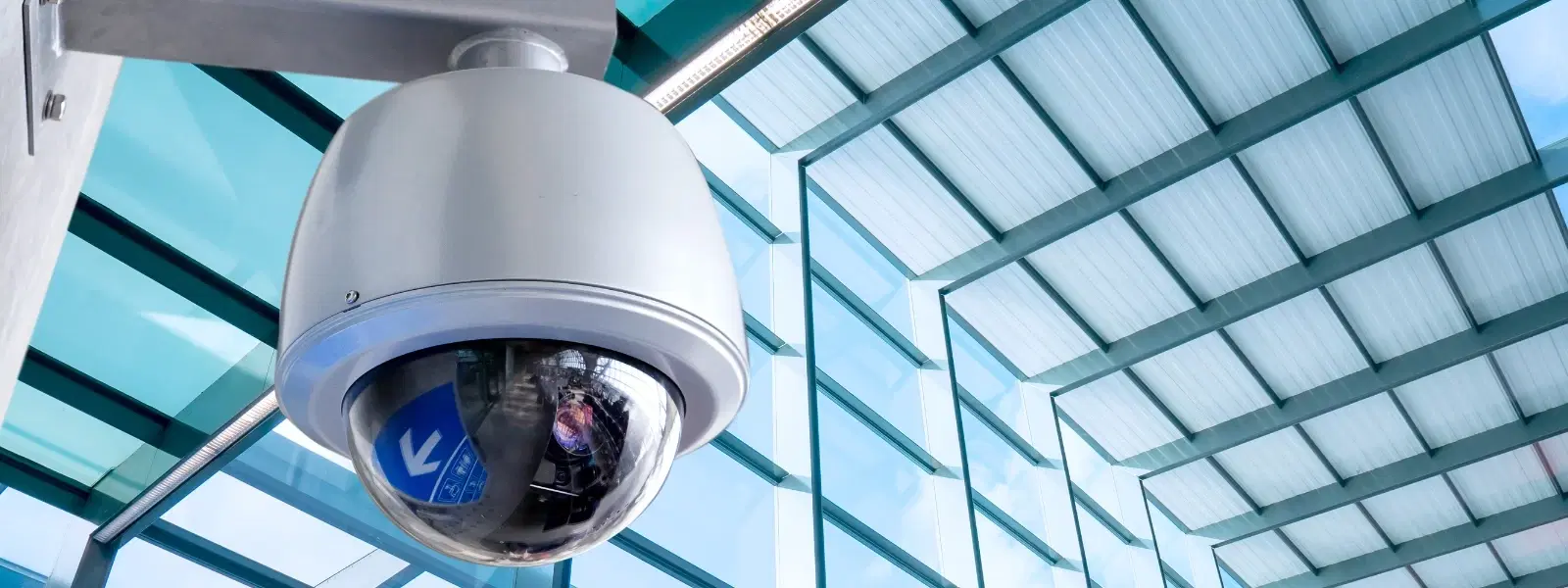
Consumer Electronics
•03 min read
Imagine having a CCTV system that not only captures video footage but also records sound — providing a more comprehensive layer of security. Today, we explore the often-asked question: do CCTV cameras record audio? This article details the technical aspects of CCTV audio recording, explains how the sound is captured and stored, and uncovers the legal framework surrounding this functionality. With clear insights, you will learn about audio capabilities of CCTV cameras and how these features can enhance your surveillance setup.
CCTV cameras can indeed record audio. The technology behind this capability involves built-in microphones that capture sound alongside visual footage. When you ask, do CCTV cameras record audio, the answer is yes—provided the camera model is equipped with audio functionality.
The audio capabilities of CCTV cameras vary. Some cameras come with advanced cctv microphone features that facilitate not just standard recordings but also clear audio capture. When considering a system, look for models that boast cctv with audio functionality to ensure you have both visual coverage and audio recording in your security setup.
Sound recording in security systems involves capturing audio through a built-in microphone. The audio is then stored along with video footage, ensuring synchronization. Essentially, this is how CCTV cameras record sound: the microphone picks up audio signals, which are digitised and merged with video data, ready for review if needed.
To determine if your CCTV system captures audio, check for specific technical details in the product specifications. Typical indicators include mentions of a built-in microphone or detailed notes on cctv audio recording capabilities. Testing recorded footage is another effective way; if you hear clear sound, then the system does record audio.
Insight Corner: "Did You Know?"
While audio recording can enhance security by providing an extra layer of detail, it is subject to stricter legal regulations than video recording. Always check local cctv sound recording laws before enabling audio features in your CCTV setup.
The legality of recording audio with your surveillance system depends on the region and the environment. In many jurisdictions, there are specific legalities of recording audio with cameras that require users to obtain consent before capturing sound, especially when it involves conversations in private or sensitive areas.
In some cases, such as public spaces or areas where all parties are aware of the recording, audio recording is generally acceptable. Conversely, installing audio-enabled devices in workplaces without proper notification may breach cctv sound recording laws. It is essential to familiarise yourself with local regulations if you intend to use audio recording.
Audio functionality in CCTV systems can significantly enhance security. Do security cameras capture sound effectively in many modern systems, capturing subtle details like conversations that can be critical during incidents. With sound integrated into the footage, it becomes easier to assess situations and identify potential threats.
Despite its benefits, audio recording comes with limitations. The quality and range of sound capture can vary between devices. Issues such as background noise, audio clarity, and the limited detection radius (often between 5-30 feet) can affect performance. Moreover, privacy matters remain a significant concern when it comes to enabling audio recording on security systems.
When selecting CCTV cameras with audio capabilities, consider features such as the type of built-in microphone, the audio recording range, and compatibility with your current security setup, like DVR or NVR systems. Look for detailed product specifications outlining the cctv microphone features and ensure that the device integrates well with your existing system.
While there are many options in the market, focus on models that clearly mention their audio capabilities of cctv cameras. Many contemporary systems come with enhanced features, ensuring that not only is high-quality video captured, but the audio recording is effective as well. As users explore advanced security solutions, they may also find value in platforms that offer rewards; for instance, Tata Neu provides NeuCoins rewards for every transacting experience, adding extra value to your purchase decisions.
Yes, some CCTV cameras are equipped with built-in microphones that enable audio recording alongside video footage.
Yes, if the camera has audio functionality and the microphone is sensitive enough, it can capture conversations within its range.
The range varies depending on the microphone’s quality, but most cameras can record audio within a radius of 5-30 feet.
It depends on your region's laws. In many areas, recording audio in the workplace requires consent from employees.
You can check the camera’s specifications, look for visible microphones, or test recorded footage for sound.
CCTV cameras with audio capabilities can significantly enhance security systems by providing more context to recorded footage. However, users must carefully consider both the legal implications and technical limitations of sound recording. By understanding these aspects and choosing the right models for your needs, businesses and homeowners alike can make informed decisions about their surveillance needs. With platforms such as Tata Neu, which offer additional benefits including NeuCoins rewards, customers enjoy a seamless shopping experience when updating their technology and security solutions.